Easter Celebrations Are Always "Egg-cellent," but Why All the Eggs?
Egg rolls. Egg decorating. Egg hunts. Easter seems to be all about eggs. Let's break down why we celebrate with eggs.
Published March 29 2024, 10:25 a.m. ET
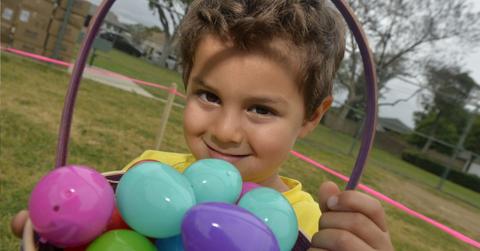
It has rolled around early in 2024, but Easter is upon us. As children participate in egg roll races, egg decorating activities, and Easter egg hunts, we can’t help but wonder what the significance of the egg is. Plus, we look forward to our Easter egg chocolates every year — it’s the best part of Easter! But when we really think about it, the overrepresentation of eggs seems random.
Easter is supposed to be about the resurrection of Jesus Christ, not eggs. The other parts of Easter include a family dinner and often going to church, in which there’s rarely a mention of eggs. So why do we celebrate Easter with eggs?
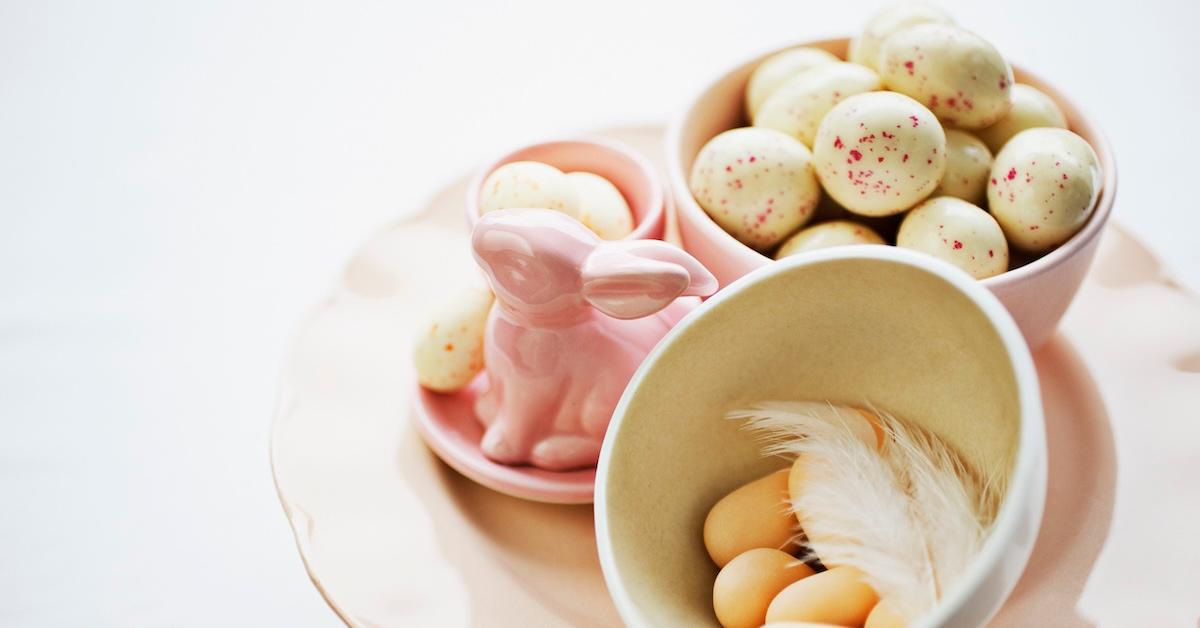
We celebrate Easter with eggs because of traditions referencing eggs’ symbolism.
As we know, Christianity is kind of a hodge podge of other religions and traditions — it pulls most strongly from Judaism and paganism. Naturally, eggs have significance in both those cultures. In Judaism, the egg is part of the Passover seder plate, a holiday that falls around the same time as Easter. Many suspect that Jesus’s “last supper” was actually a Passover seder, so it makes sense that some Passover traditions would find their way over to Easter.
One such Passover tradition is a change in diet. Jewish people can't eat leavened bread (and other items) during the eight days of Passover. People who celebrate Easter also have a restricted diet during Lent — the 40 days leading up to the holiday. Historically, people who observed Lent could not eat meat or eggs, so communities would celebrate the end of Lent by giving out eggs to churchgoers.
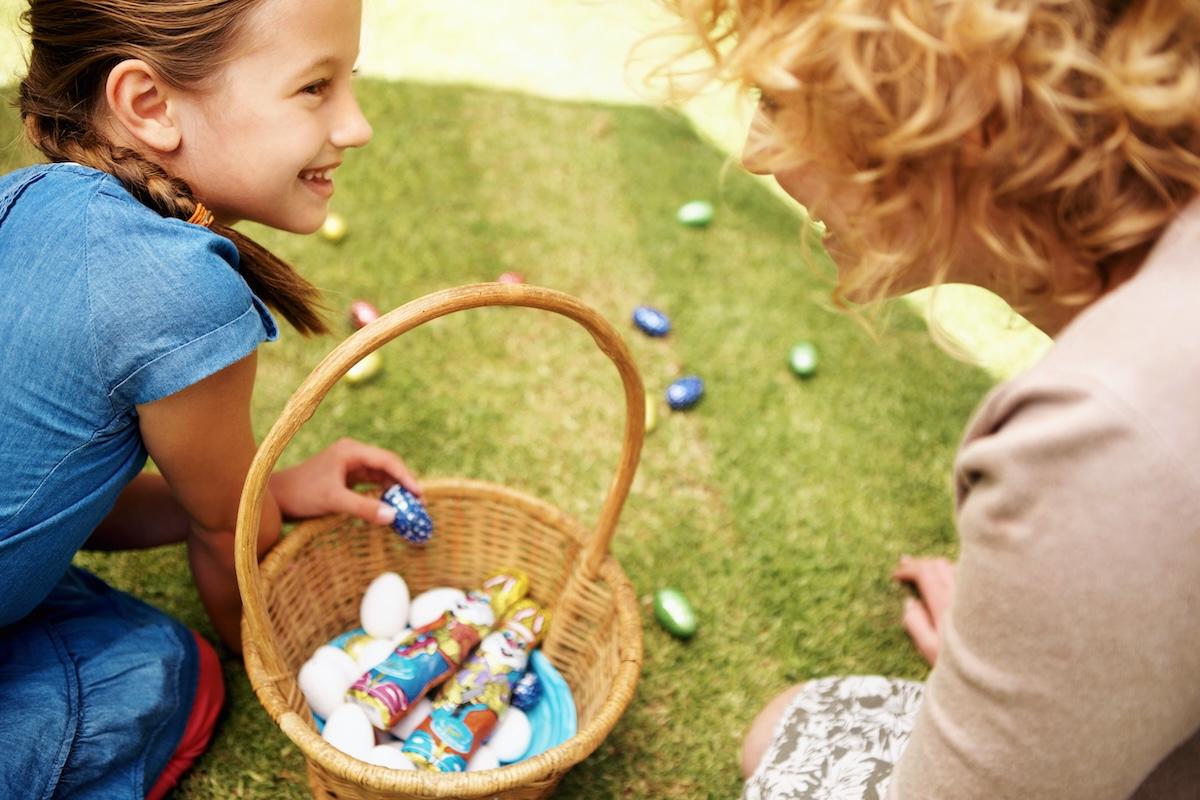
In Paganism, eggs are a symbol of fertility and rebirth in the springtime, which is why they are used to symbolize Jesus’s rebirth during Easter. When the eggs are handed out at church services, the hard shell represents Jesus’s sealed tomb, and the cracking of the egg represents Jesus’s rise from the dead.
The activities surrounding eggs on Easter also come from different traditions.
Easter egg painting started in Mesopotamia when Christians painted the eggs red to symbolize Jesus’s bloodshed on the cross. Of course, we don’t often talk about that today since egg-painting has transformed into a fun and nearly secular family activity. The painting tradition morphed over the years.
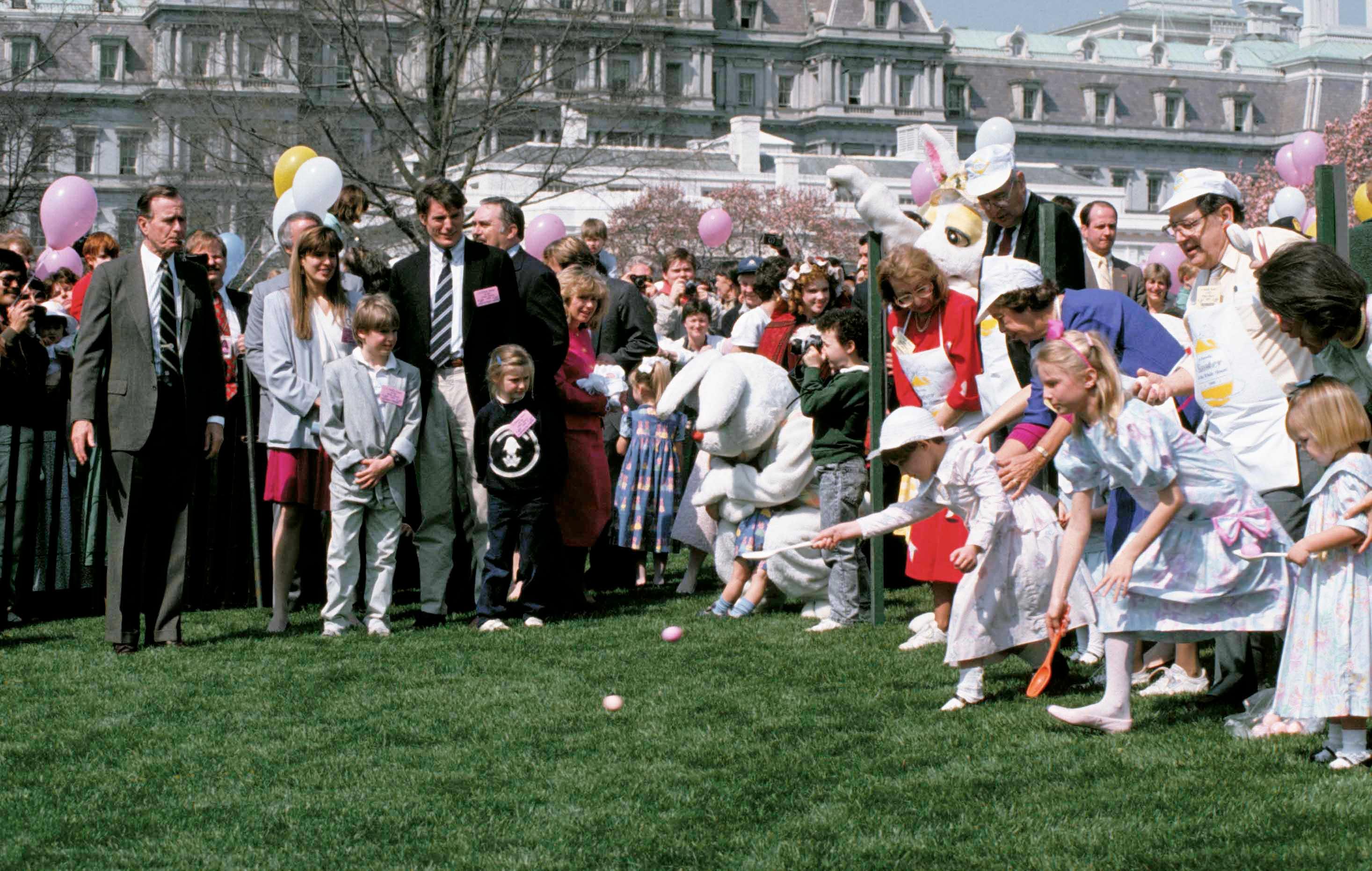
As the tradition spread throughout Europe to Orthodox churches, Catholic and Protestant priests took on the practice of dyeing eggs red. Christian missionaries took this concept and ran with it by using different colors to represent different parts of the Easter story — yellow for the resurrection, blue for love, and red for the blood of Christ.
Eventually, missionaries started painting biblical scenes on the eggs for kids to find and describe during the egg hunt. This way, the children would tell the stories seen on the eggs to help them learn about Easter. These egg hunts date back to at least the era of Martin Luther, a protestant leader from the early 16th century. Supposedly, the joy of finding an egg was supposed to mirror the joy of Jesus’s rebirth, which is why today, eggs in Easter egg hunts are typically filled with treats.
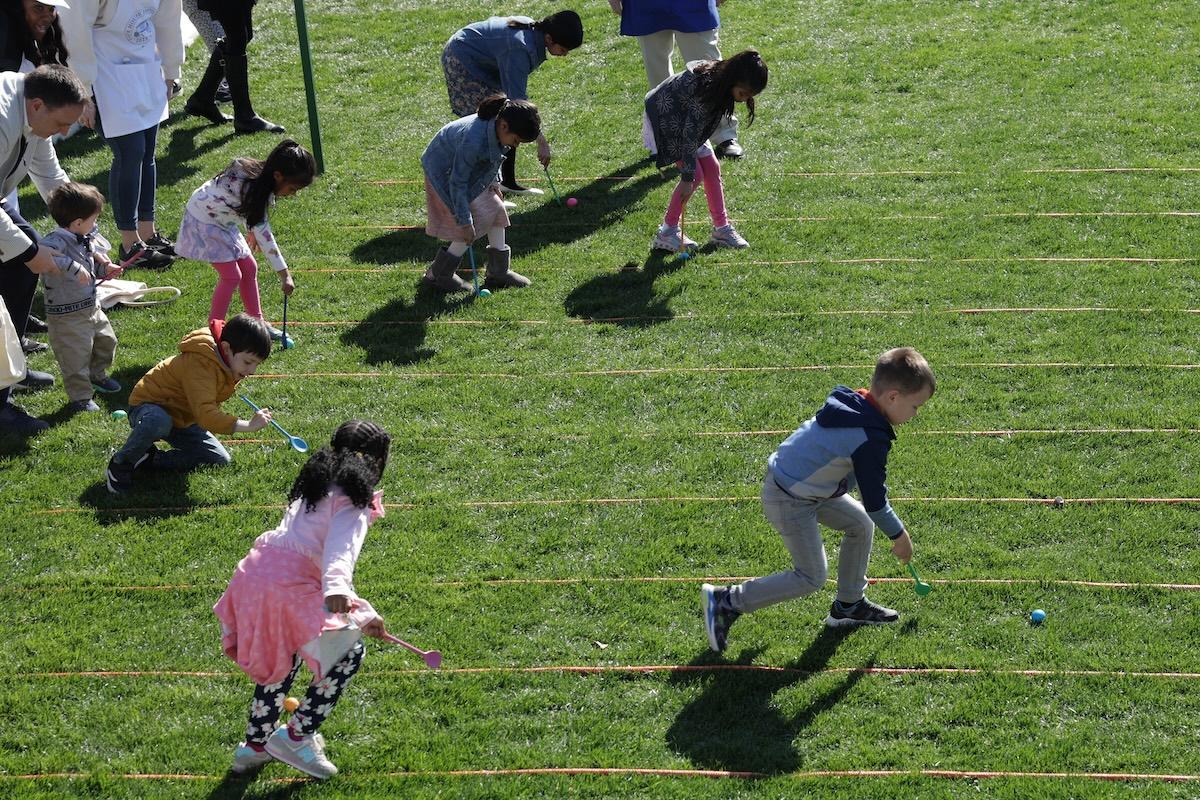
Additionally, the Easter Egg Roll is a common tradition celebrated at the White House. This began with “pace eggs” from Lancashire in the 18th century. These eggs would be hard-boiled and decorated, and they were given as gifts to Easter play actors. Children would then use these eggs to race without breaking them. Some speculate that they symbolized the rolling away of the stone from Jesus’s tomb.
But whatever the reason behind the Easter egg traditions, the one we’re most excited about is chocolate eggs! So let’s get munching and find all of the eggs.